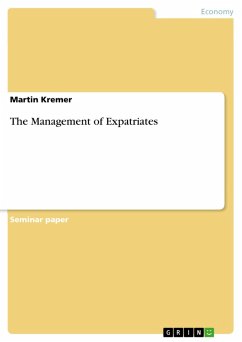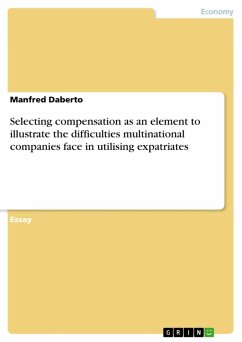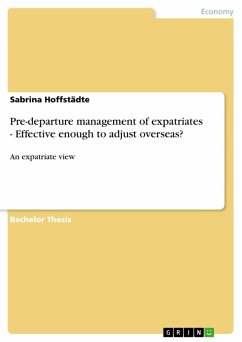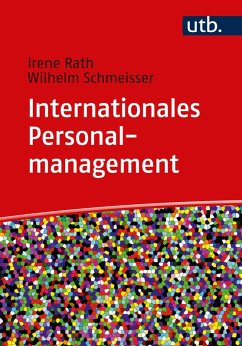
The Management of Expatriates (eBook, ePUB)

PAYBACK Punkte
0 °P sammeln!
Seminar paper from the year 2000 in the subject Business economics - Business Management, Corporate Governance, grade: written part: 1.3; Term-grade 1, University of Applied Sciences Bremerhaven (Economics), course: IHRM, International Human Resources Management, language: English, abstract: Foreword Expatriate life in the past has been regarded as luxurious, exciting and dynamic. These perceptions, whether correct or not, have persuaded many people to work for multinational companies (MNC's). On the one hand, an MNC's recruitment strategy, however, do not occur in a vacuum and as a consequenc...
Seminar paper from the year 2000 in the subject Business economics - Business Management, Corporate Governance, grade: written part: 1.3; Term-grade 1, University of Applied Sciences Bremerhaven (Economics), course: IHRM, International Human Resources Management, language: English, abstract: Foreword Expatriate life in the past has been regarded as luxurious, exciting and dynamic. These perceptions, whether correct or not, have persuaded many people to work for multinational companies (MNC's). On the one hand, an MNC's recruitment strategy, however, do not occur in a vacuum and as a consequence changes in the international environment can have an important influence on their desire to employ expatriates. While, on the other hand, the proximity of the home culture and local culture definitely influence how the expatriate family adjust to their assignment abroad. This paper will discuss the advantages as well as the disadvantages of using expatriates for international assignments and it will explain the reasons for the most common failures. In addition, I will summarise the most useful lessons, which an international manager/expatriate has to know before going abroad (e.g. sending, entry, stay and re-entry). Finally, there will be a conclusion in which one can add his or her perception or ideas towards the individual case of assignment (whether it is long-termed or short-termed). For a start, I will give the reader some definitions, which are important to know when dealing with the subject of foreign assignments. (à to get a short overview one can turn to the attachment-section) [...]
Dieser Download kann aus rechtlichen Gründen nur mit Rechnungsadresse in A, B, BG, CY, CZ, D, DK, EW, E, FIN, F, GR, HR, H, IRL, I, LT, L, LR, M, NL, PL, P, R, S, SLO, SK ausgeliefert werden.













